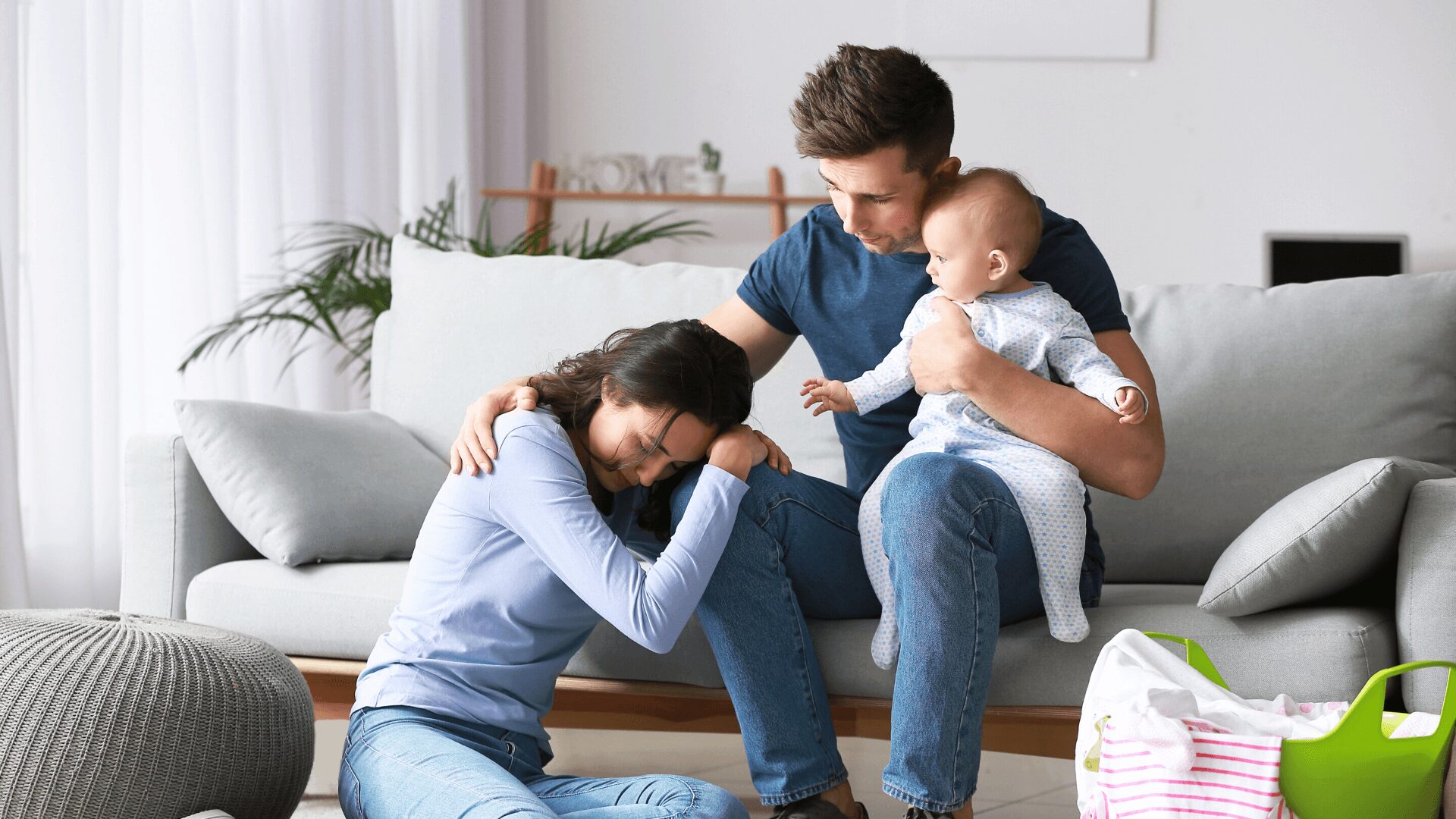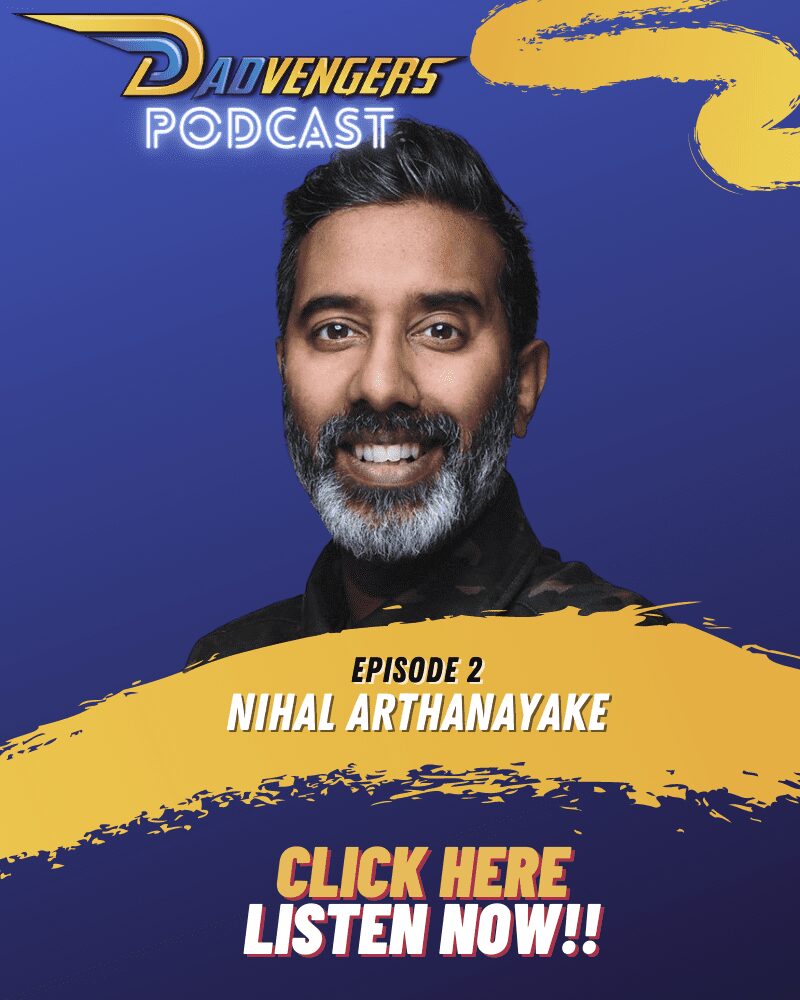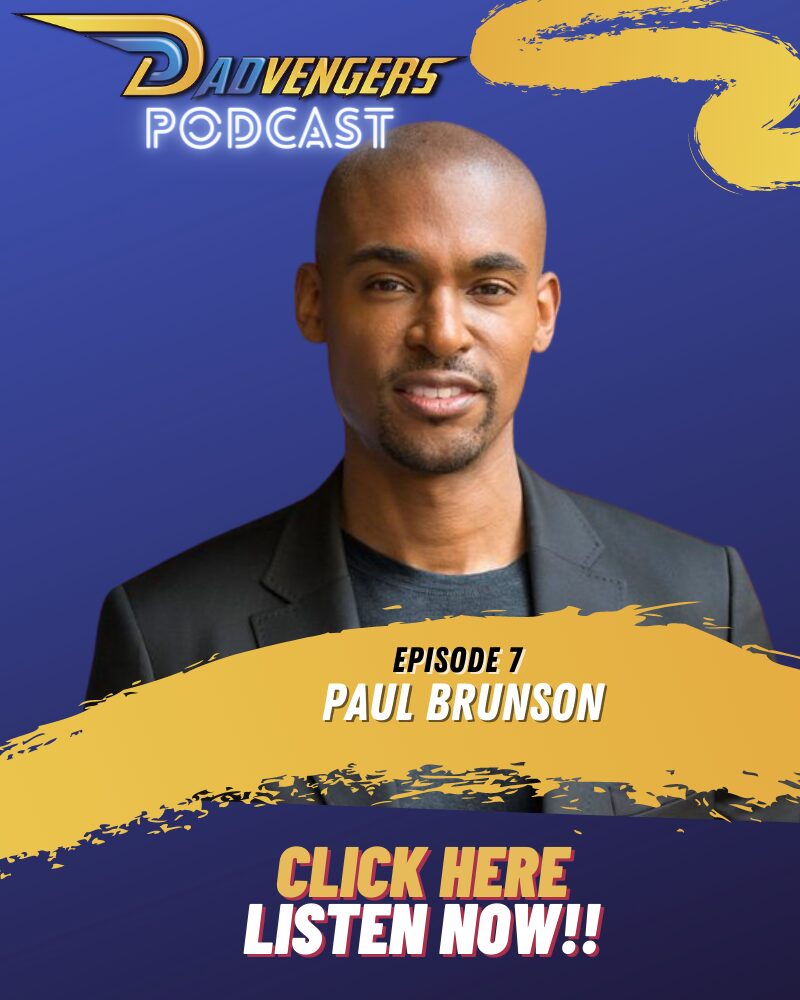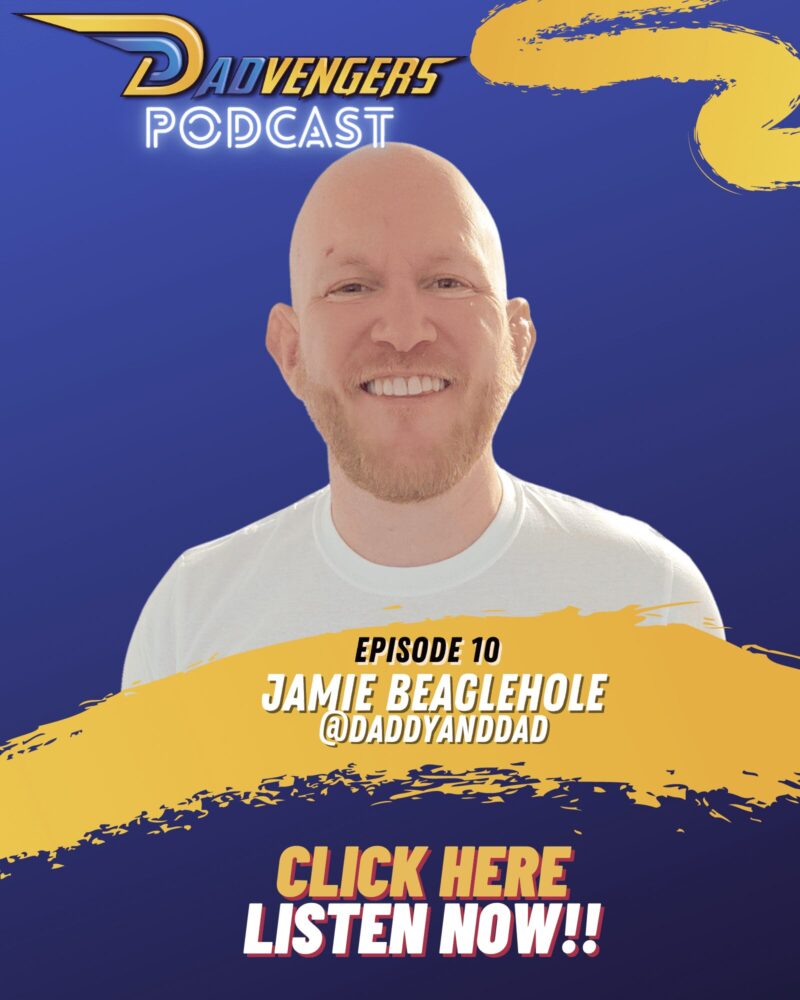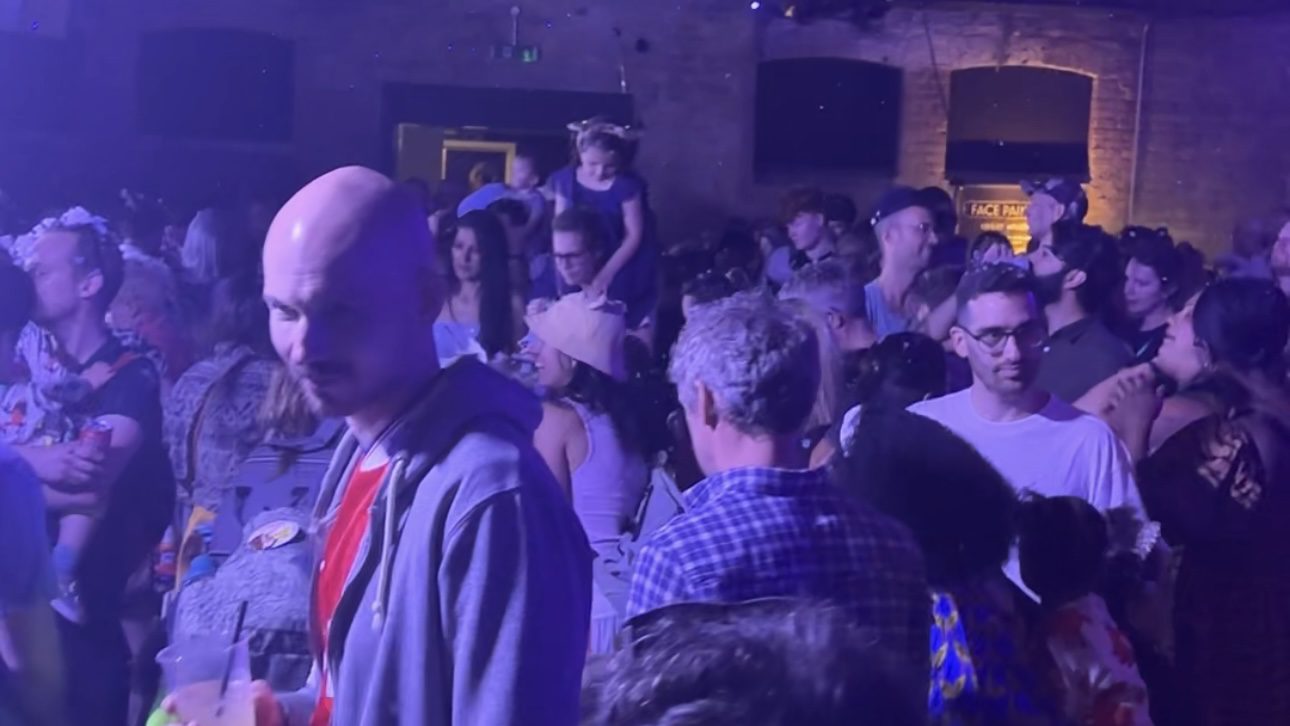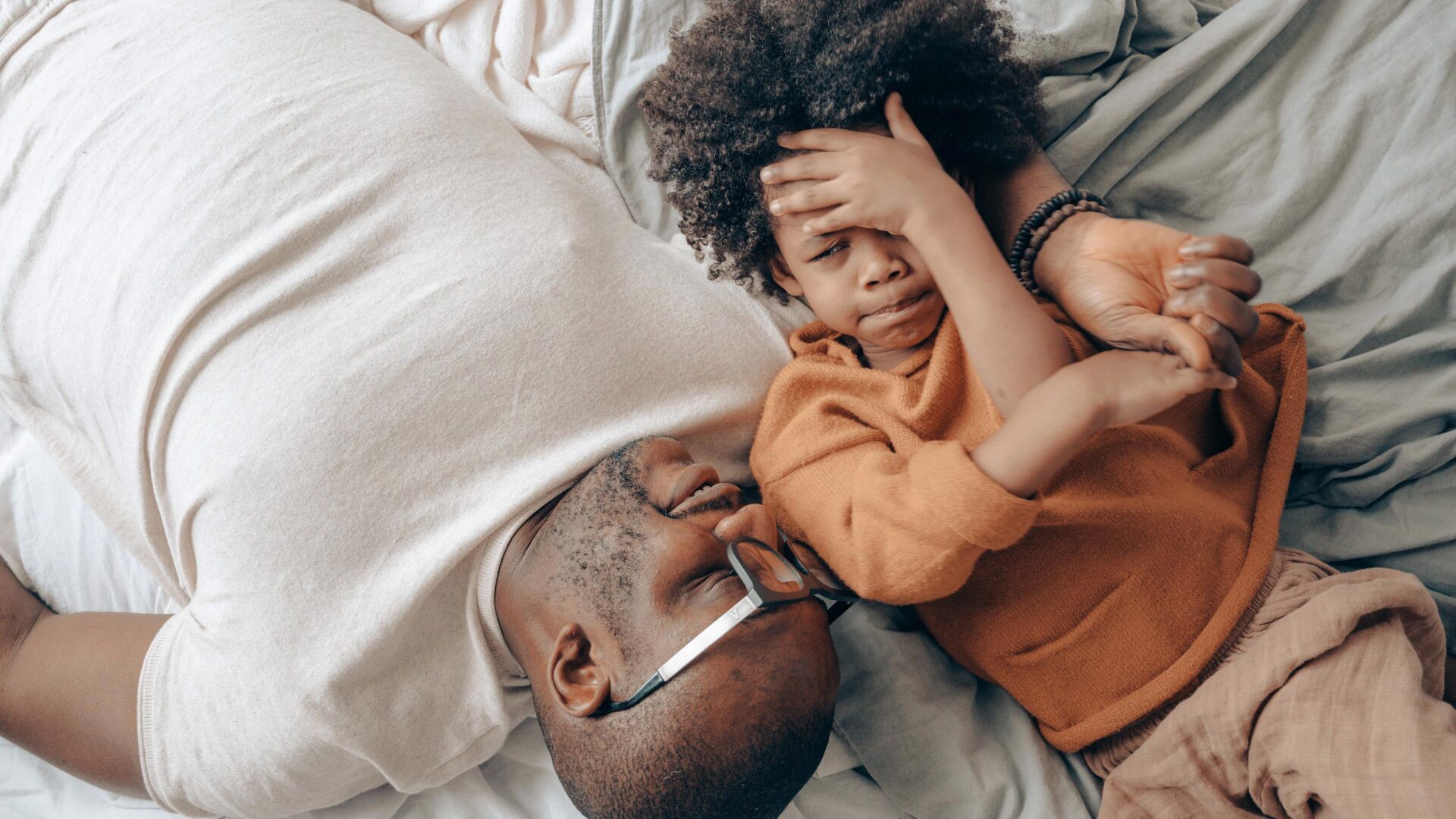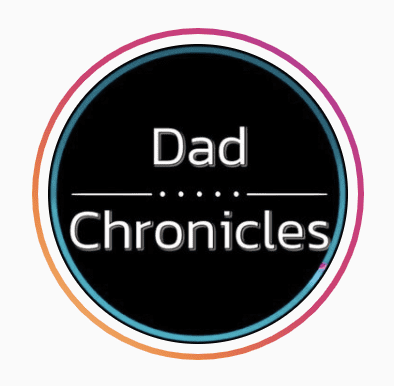Simon O’Mara and the team from APP tell us everything you need to know about postpartum psychosis as a father.
I had never heard of Postpartum Psychosis before having children. But it would shortly become one of the biggest learning experiences I’d ever endured. In the first couple of weeks after my wife gave birth, I’d noticed subtle changes in her mood. However, as a first-time father, I didn’t really know what was ‘usual’ or ‘unusual’ after birth. So at first although I thought some behaviour was strange, I wasn’t too worried.
A few weeks later these changes became suddenly dramatic, and things became very scary, very quickly. Over the next few days, my wife woke in the early hours ‘ghost like’. My wife’s mood had plummeted, she was anxious, confused, pacing around the house, having delusions and hallucinations,. Ultimately it all ended in a 999 call. I found myself in complete turmoil and throughout our journey with PP. There was a mix of emotions. I was terrified, felt isolated, and felt guilt ridden for decisions I’d made. However, the support we received from family, friends and eventually specialist health professionals treating my wife was vital.
How I teach others everything you need to know about postpartum psychosis as a father.
I now work as the Partner Peer Support Facilitator for Action on Postpartum Psychosis (APP). The leading national charity for women, partners and families affected by PP. As somebody who’s been there, I am teaching partners everything they need to know about postpartum psychosis as a father. I know how difficult PP can be and how it affects not only the women who directly experience it, but also the partners and families who watch their loved ones go through it. This trauma can have a lasting effect on the wider family’s mental health if not supported appropriately.
We offer lots of support and information for partners and families as well as the women who experience PP. There is lots of support for partners through our Partner’s Guide and partner peer support network.
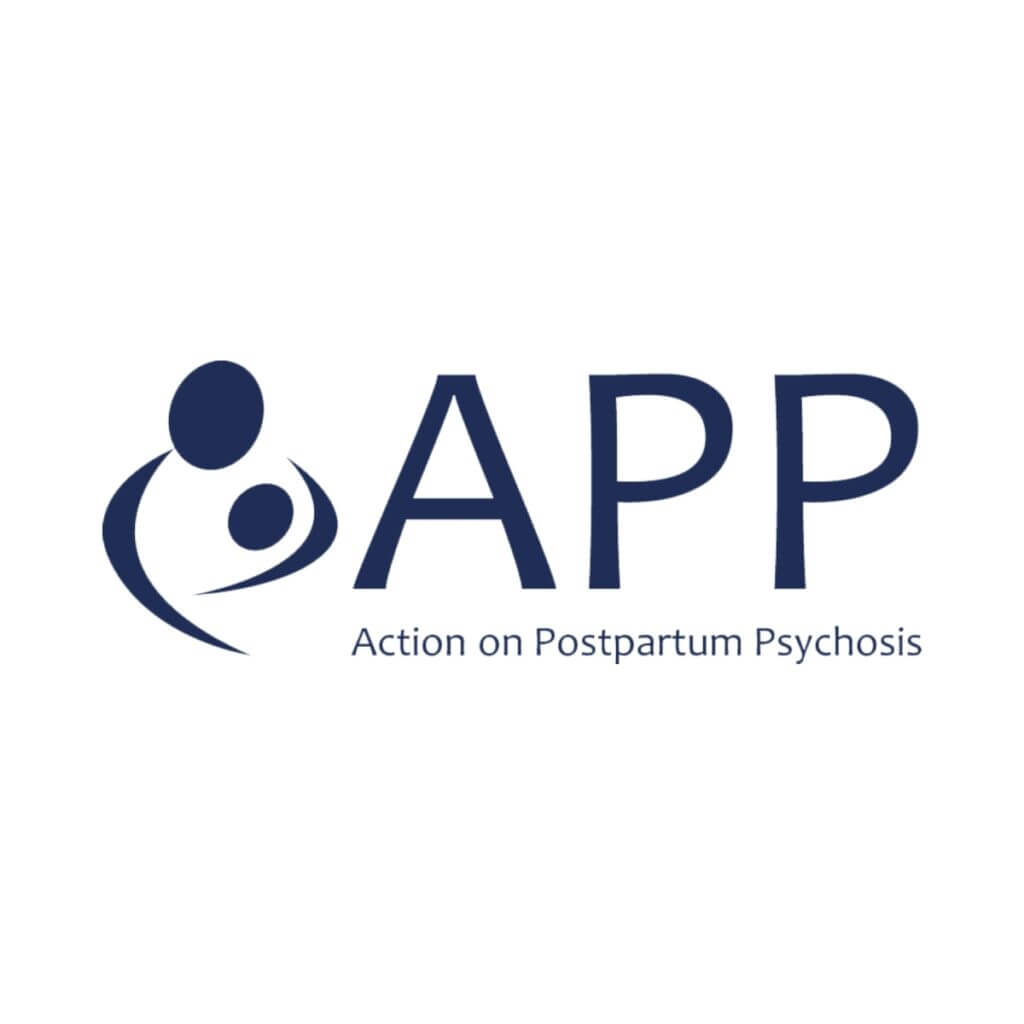
So what is Postpartum Psychosis?
PP is a severe but treatable form of mental illness. It usually starts within the first couple of days to weeks after childbirth. Some develop symptoms very quickly whereas for others, symptoms can be more gradual or come and go. 50% of women experience postpartum psychosis “out of the blue” with no previous history of mental health problems. It can be difficult for partners to work out when to seek help. It’s hard for new parents to know what behaviour might be ‘unusual’ after the birth of a baby.
Symptoms often include:
- Confusion or racing thoughts
- Feeling unusually high or elated
- Being unable to or not needing to sleep
- Beliefs that are unusual or concerning to others
- Seeing, hearing or sensing things that others can’t
- Anxiety
For more information on the early symptoms of PP, visit: www.app-network.org/early-symptoms
PP is always a medical emergency, which requires rapid intervention and is best treated in a specialised Mother and Baby Unit (MBU). With the right treatment and support, women with PP do make a full recovery and families are able to move on with their lives together.
Difficult times
For partners, seeing the symptoms of PP first-hand, can be a truly traumatic experience. The following are just a couple of the many quotes from partners:
“She just stood there and screamed”
“Somehow she had changed the world and she was watching the news, in the belief that she would see herself on it and they would report on what she had done.”
Many fathers describe feeling like their world has been turned upside down, with little or no control over the situation. They often talk of not knowing what was happening, feeling alone and scared; desperate to find information and to help their partner. They don’t know where to go to find everything you need to know about postpartum psychosis as a father.

Postpartum psychosis as a father or partner, feels very much like a journey with a number of possible stages. From the initial crisis, potential admission to hospital, returning home and recovery. All of which bring different feelings and concerns to the fore. While you hold it together for your wife and family, you may hide or not realise how concerned you are.
Getting help for your partner
It can be an extremely worrying and stressful time if your partner is experiencing symptoms of PP. It’s important to know that neither of you have to struggle alone. There is a lot of support available when you know where to look.
PP is always a medical emergency so getting help quickly is important.
- If your partner is under the care of a mental health team, contact them or your Crisis Team
- If your partner hasn’t been in mental health services before:
- See your GP urgently (the same day) or contact NHS 111
- If you cannot see your GP, go to your local A&E department
- If you think there is imminent danger. For example, that your partner may hurt herself call 999 and ask for an ambulance
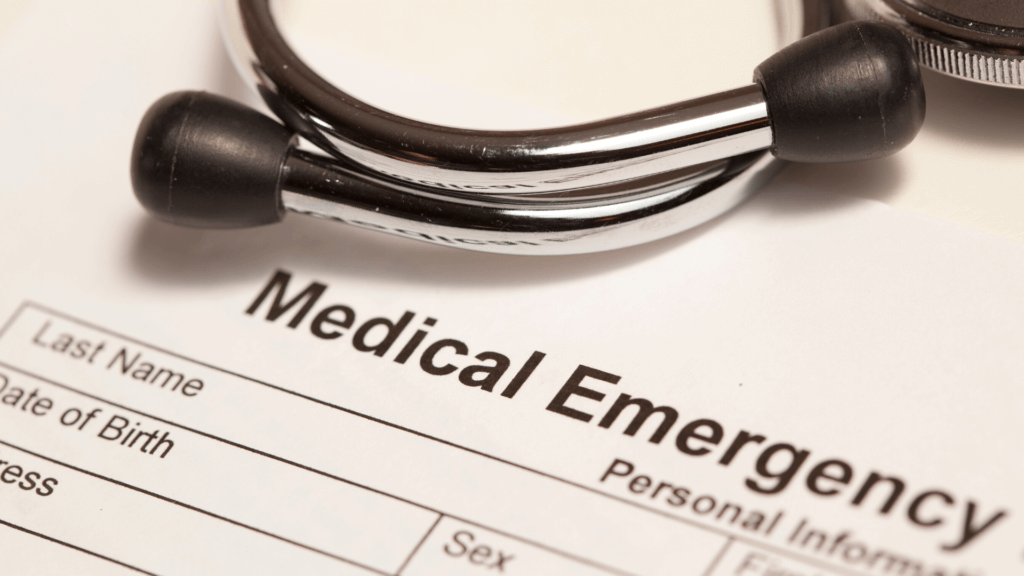
Hospital admission
Most women with postpartum psychosis need to be treated in hospital. Ideally women should be offered a bed in a Mother & Baby Unit (MBU). This is a specialist psychiatric unit where mothers with mental illness are admitted with their babies. Keeping mum and baby together can help with the recovery and bonding process. During which the mums are supported in caring for their baby whilst having the care and treatment they need.
Sadly, there are many parts of the country with no Mother and Baby Unit. Even where there are MBUs, there may not be a bed available. Women may be admitted to a general psychiatric ward and partners will need to care for their baby at home. This can be especially difficult for partners. Partners are often balancing hospital visits, caring for their baby and coming to terms with what is happening.
Recovery
Partners tell us that it can be an especially worrying time when mums first come home from hospital. It can be difficult to balance supporting baby care, work and worries about ongoing mental health difficulties. Mums are offered support on their return home. This is either through a Specialist Perinatal Mental Health Team, or a Community Mental Health Team. Partners should also be able to access support for their own mental health through these teams. However in many areas of the UK this is just beginning to develop. Peer support for partners is available through APP, It is free to access and can be invaluable at a time when partners are often hit by the enormity of what they have been through.
With the right support, women can and do make a full recovery from PP and so do their families. You can read more personal experiences of recovery here.

Getting help for you
- Talk with your wife/partner’s medical team
- See your own GP
- Confide in a trusted family member or friend
- See APP website, for all our possible support options too
Support
APP supports women, partners and families, with the Partner Project specifically focusing on supporting the partners of women affected by PP.
We know that partners contact us at many different stages throughout their journey – whether in the early days of the crisis, partway through the journey or, in some instances, even years later.
Sometimes it can simply be a quiet time at home, when your wife or partner is recovering well and everything is looking much better, that the traumatic events of postpartum psychosis can hit partners the hardest. This is why we continue to raise awareness of just how important it is to look after the whole family when it comes to postpartum psychosis.
APP is here to support you along the journey, no matter when you feel you need it. Support includes:
- 1:1 chat support via email, call or video
- APP website and Partner Resources
- Partner guides
- APP Partner’s Facebook closed group
- Partner online group calls
Please do get in touch if we can help you.
Email: app@app-network.org
Watch the relevant Dad Chats Live Episode
If you’d like to watch and listen to Simon talking about this subject don’t forget you can check out his guest appearance on Dad Chats Live. Our Weekly parenting chats hosted on our Instagram Account.
Watch now>>>
Has this post helped you?
Has this post got you thinking about postpartum psychosis? Maybe you have your own experiences you’d like to share with us? Please leave your comments in the section below and share this and other Dadvengers Posts with your family and parenting friends.
Dadvengers is a community of parents (that’s Mums and Dad’s) focused on supporting Dads on their journey through parenthood.
.


